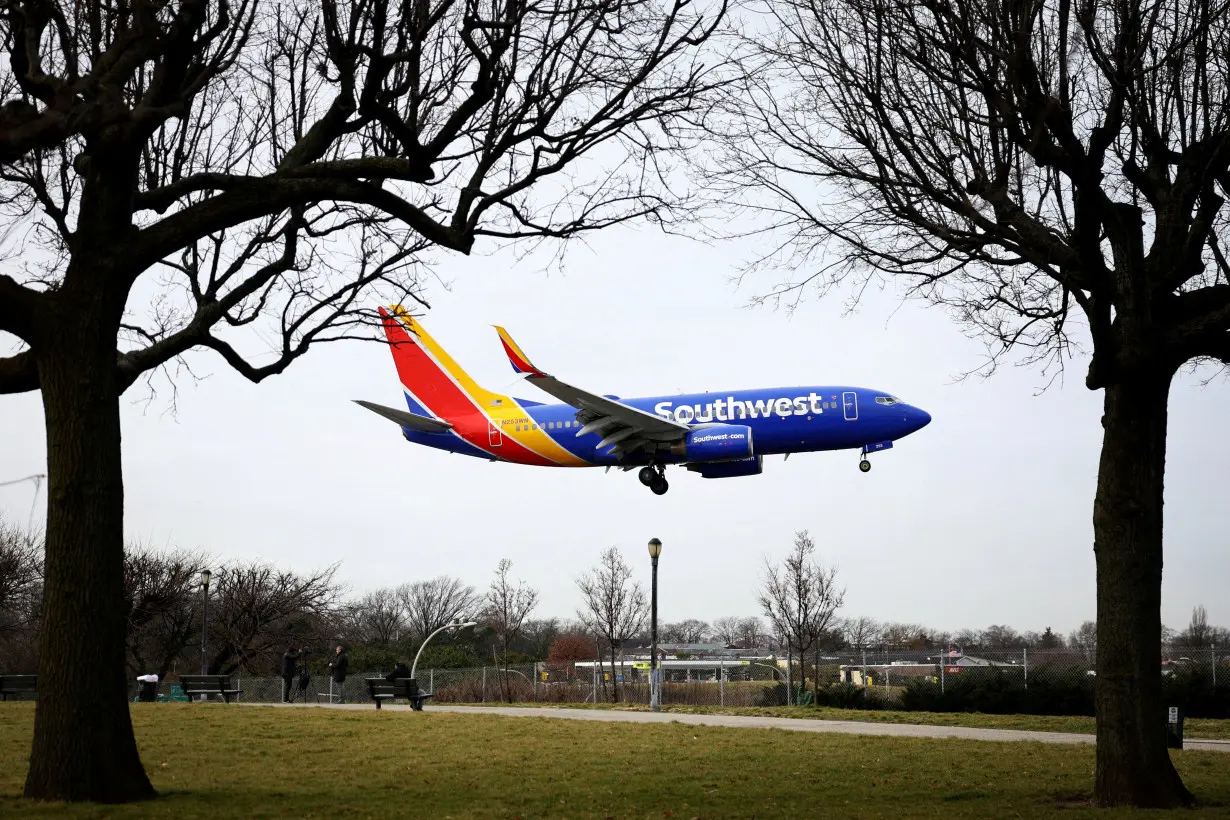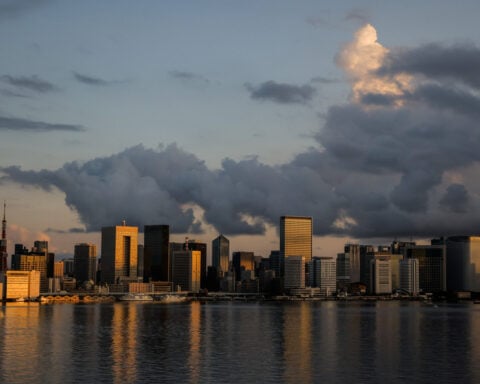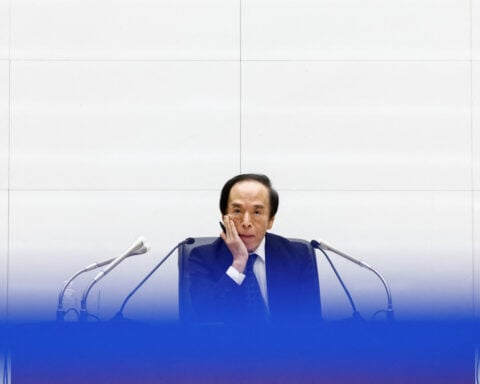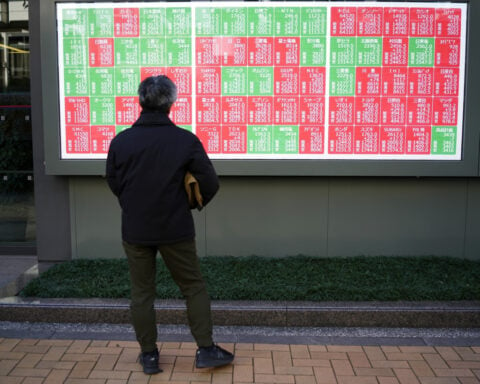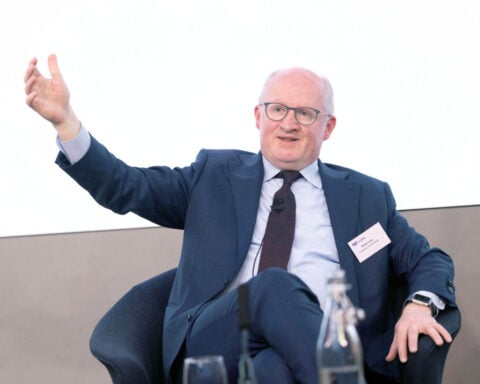By Rajesh Kumar Singh and Shivansh Tiwary
(Reuters) -Southwest Airlines announced sweeping changes on Thursday, including plans to end open seating that has been the hallmark of its brand for decades as it faces investor pressure to improve results and shore up its share price.
Earnings have been under pressure in recent quarters, partly because of delays in plane deliveries from Boeing, which have hit revenue and worsened cost pressures. Southwest is also facing pricing pressure as an industry-wide overcapacity in the domestic market has dampened airfares.
But Southwest's shares have lost about 30% of their value over the past two years, during a time when the broad-market S&P 500 has gained about 37%. Activist investor Elliott Investment Management is pushing for leadership changes, saying the company needs fresh perspectives to compete in the modern airline industry. It has warned of a proxy fight.
Southwest CEO Bob Jordan said on Thursday that Elliott has not shown willingness to engage in any meaningful conversations, adding that the airline is taking steps to transform itself and hit its financial goals.
"We do see this as a fundamental transformation of Southwest Airlines," Jordan said on the company's earnings call.
That includes the end of open seating that the company has been known for since the 1970s when it started operations, driven by its founder, Herb Kelleher.
Shares rose 6% at $28.31 in afternoon trade.
While all U.S. carriers are facing pressure to discount fares due to an excess supply of seats in the domestic market, airlines like Delta and United are leaning on long-haul international flights and high-margin premium cabins to protect their profit.
Southwest currently doesn't offer these products, but said on Thursday that it now plans on offering seats with extra legroom on its airplanes.
The company's research shows that 80% of its customers, and 86% of potential customers prefer an assigned seat. It also plans to offer premium, extended legroom seats, which will account for roughly one-third of seats across its fleet.
The company said the new cabin layout will require approvals from the U.S. Federal Aviation Administration and is expected to be available for bookings in 2025.
U.S. carriers have been reporting strong demand for high-margin premium cabins. Alaska Airlines last week said it would add 1.3 million premium seats annually to its mainline fleet.
The company said adding premium seats will require little investment, without offering more details. It did not quantify the boost to its earnings and revenue, either.
Southwest plans to share more details at its investor day in September. It will also start overnight flights in February.
"Southwest's announcement of revenue-enhancement initiatives, purporting to offer assigned seating, premium-seating options and redeye flights, comes more than a decade late," Elliott Investment said in a statement.
Elliott also reiterated its call for a new leadership at the carrier.
Jordan said the company currently has no plans to start charging for bags, adding the airline's data shows that a no-bag fee policy is the number one reason customers choose it.
Southwest said it was in discussions with Boeing about the negative financial impact it faces from delayed deliveries. It expects compensation in the form of price discounts.
It expects third-quarter unit revenue to be flat to down 2% year-on-year, while non-fuel operating costs are estimated to be up 11%-13%.
TD Cowen analyst Thomas Fitzgerald said Southwest's outlook implies losses in the current quarter and breakeven in the fourth quarter.
Southwest's second-quarter adjusted profit came in at 58 cents per share, compared with analysts' average estimate of 51 cents per share, according to LSEG data.
(Reporting by Rajesh Kumar Singh in Chicago and Shivansh Tiwary in Bengaluru; Additional reporting by Aishwarya Jain in Bengaluru; Editing by Pooja Desai, Nick Zieminski and Daniel Wallis)

 Michigan Gov. Gretchen Whitmer, a potential 2028 candidate, wants to find common ground with Trump
Michigan Gov. Gretchen Whitmer, a potential 2028 candidate, wants to find common ground with Trump
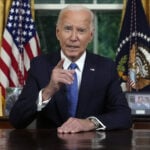 Biden promised to turn the page on Trump. Now he's being replaced by him
Biden promised to turn the page on Trump. Now he's being replaced by him
 Firefighters prepare for increasing gusts following brief reprieve for LA area
Firefighters prepare for increasing gusts following brief reprieve for LA area
 Nippon Steel wants to work with Trump administration on US Steel deal, Mori tells WSJ
Nippon Steel wants to work with Trump administration on US Steel deal, Mori tells WSJ
 After cable damage, Taiwan to step up surveillance of flag of convenience ships
After cable damage, Taiwan to step up surveillance of flag of convenience ships
 BOJ will raise rates if economy, price conditions continue to improve, Ueda says
BOJ will raise rates if economy, price conditions continue to improve, Ueda says
 Manatees congregate in warm waters near power plants as US winter storms graze Florida
Manatees congregate in warm waters near power plants as US winter storms graze Florida
 AAPI adults prioritize immigration, but split on mass deportations: AP-NORC/AAPI Data poll
AAPI adults prioritize immigration, but split on mass deportations: AP-NORC/AAPI Data poll
 As Los Angeles burns, Hollywood's Oscar season turns into a pledge drive
As Los Angeles burns, Hollywood's Oscar season turns into a pledge drive
 As fires ravage Los Angeles, Tiger Woods isn't sure what will happen with Riviera tournament
As fires ravage Los Angeles, Tiger Woods isn't sure what will happen with Riviera tournament
 Antetokounmpo gets 50th career triple-double as Bucks win 130-115 to end Kings' 7-game win streak
Antetokounmpo gets 50th career triple-double as Bucks win 130-115 to end Kings' 7-game win streak
